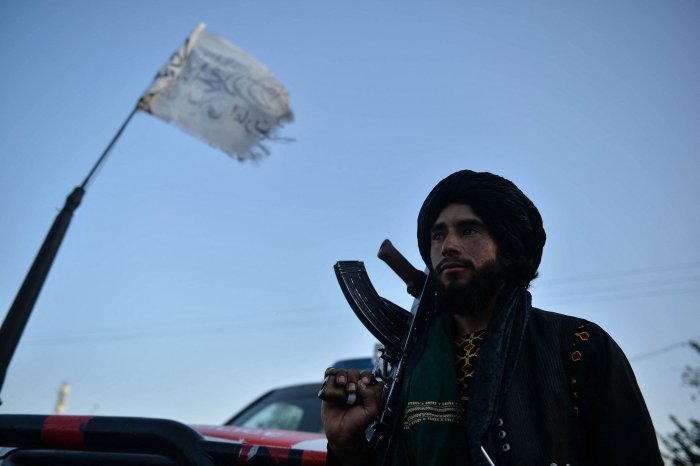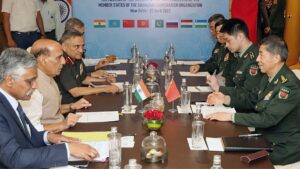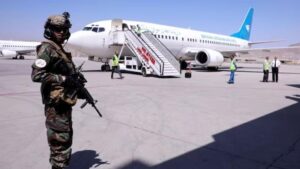Over 100 Extrajudicial Killings Since Taliban Takeover In Afghanistan: UN

Over 100 Extrajudicial Killings Since Taliban Takeover In Afghanistan: UN
The UN has said there are” believable allegations”of further than 100 extrajudicial killings in Afghanistan since the Taliban took power in August, with utmost criticized on the country’s new autocrats.
UN deputy rights principal Nada Al-NAashif said she was deeply scarified by continuing reports of similar killings, despite a general remittal blazoned by the Taliban after their August 15 preemption.
“Between August and November, we entered believable allegations of further than 100 killings of former Afghan public security forces and others associated with the former government,”she told the UN Human Rights Council on Tuesday.
“At least 72 of these killings,”she said, were” attributed to the Taliban”.
“In several cases, the bodies were intimately displayed. This has aggravated fear among this sizeable order of the population,”she said.
Taliban foreign ministry spokesperson Abdul Qahar Balkhi said the government was” completely married”to the remittal decree, and denied workers of the former administration were being bedeviled.
Anyone” plant violating the remittal decree will be fulfilled and penalised”, he said.
” Incidents will be completely delved but unwarranted rumours shouldn’t be taken at face value.”
Al-Nashif, who presented Tuesday’s update to the council on behalf of UN rights principal Michelle Bachelet, said numerous members of the jihadist Islamic State-Khorasan group– a main Taliban adversary– had also been killed.
“In Nangarhar fiefdom alone, there. appears to be a pattern of at least 50 extrajudicial killings of individualities suspected to be members of the ISIL-KP,”she said, with reports of” brutal styles. including hanging, beheadings, and public display of corses”.
In a report released Wednesday, Amnesty International also said members of the Taliban had tortured and killed ethnical and religious nonages, former Afghan dogfaces and suspected government sympathisers as they seized control of Afghanistan in July and August.
“Our new substantiation shows that, far from the flawless transition of power that the Taliban claimed happed, the people of Afghanistan have formerly again paid with their lives,” said Amnesty clerk general Agnes Callamard.
” Homes, hospitals, seminaries and shops were turned into crime scenes as people were constantly killed and injured. The people of Afghanistan have suffered for too long, and victims must have access to justice and admit restitutions.”
Amnesty said the full scale of the killings remained unknown.
The UN and Amnesty commentary came after the United States and other countries condemned the Taliban following a Human Rights Watch report before this month establishing 47 summary prosecutions.
Those killings were of former members of the Afghan National Security Forces, other military help, police and intelligence agents”who had surrendered to or were restrained by Taliban forces”frommid-August through October, it said.
Taliban spokesperson Qari Sayed Khosti flatly rejected the HRW report and other claims about extrajudicial killings as”not grounded on substantiation”.
In her update Tuesday, Al-Nashif depicted the profound philanthropic extremity in Afghanistan, saying numerous people were being” pushed to take hopeless measures”to survive, including child labour and indeed reportedly”the trade of children”.
The UN says further than 23 million Afghans– over half the population– will face an” acute” food deficit in the downtime months, forcing millions to choose between migration and starvation.
The UN’s World Food Programme said Tuesday that its rearmost checks estimated 98 percent of Afghans weren’t consuming enough food– up 17 chance points since August.
“Afghanistan is facing an avalanche of hunger and pauperism the likes of which I’ve noway seen,”WFP country director for Afghanistan Mary-Ellen McGroarty said in a statement.
The extremity is due to the combined goods of failure caused by global warming, and an profitable meltdown exacerbated by the transnational community’s decision to indurate backing to the aid-dependent nation after the Taliban preemption.
Al-Nashif advised that”the delicate policy choices that member countries make at this critical juncture, to forestall profitable collapse, are literally life and death.”





